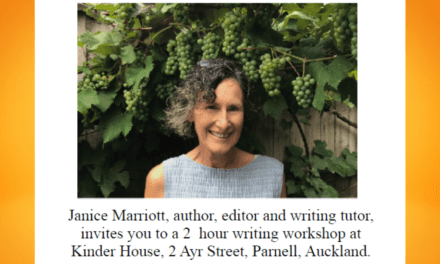As I was writing a description for Trade Me to list a bike for sale, I realised that such descriptives have something in common with fiction writing – they contain a lot of tantalising information. It’s something we sometimes forget about when the opening of a story or an exciting scene is foremost in our minds and we just want to get it down on the page. It is during the redrafting of that opening or scene, that the writing can be ‘grounded’ in the world of the story … and this is where the use of detail (or information) comes in.
Imagine you are writing a scene in which a treasure is found on a beach. This beach might be a rocky one, or a sweep of golden sand. The beach might be lined by a pine forest, or it might be an Auckland beach which is overlooked by mansions. Have you sketched in those kinds of details? It’s common for a writer to see the beach in their mind, yet somehow neglect to describe enough of it for the reader to picture it properly.
Or imagine a chase scene in which a character on foot is being pursued through Wellington CBD. There are two levels of information here to be considered: the details of the pursuit – how it takes place both physically and via your character’s point of view (notably, their fear and panic), and the setting they are hurrying through. You can’t, for instance, assume the reader will be familiar with a specific location such as Chew’s Lane. As a writer, you need to provide something of that information for the reader.
Course, that doesn’t mean you are overloading each and every scene with detail. Sometimes all it takes is a deftly-sketched phrase or two.
In the NZIBS Creative Writing course, students are asked in one assignment to describe a place they love. This is exactly where you can go to town with detail – using all the senses – to describe what this place is like. The more detail you can use in a descriptive piece, the more the reader will be able to visualise the picture.
Every time we write something we are offering information – we are building a picture, we are creating a story with specific details, we are giving the reader information about what our characters are thinking and feeling.
Do you feel a creative stirring deep within your spirit?
Discover your own ‘voice’. Learn how to develop a plot, characters, dialogue, structure and personal style. It’s even better when you get paid for doing something you enjoy.










